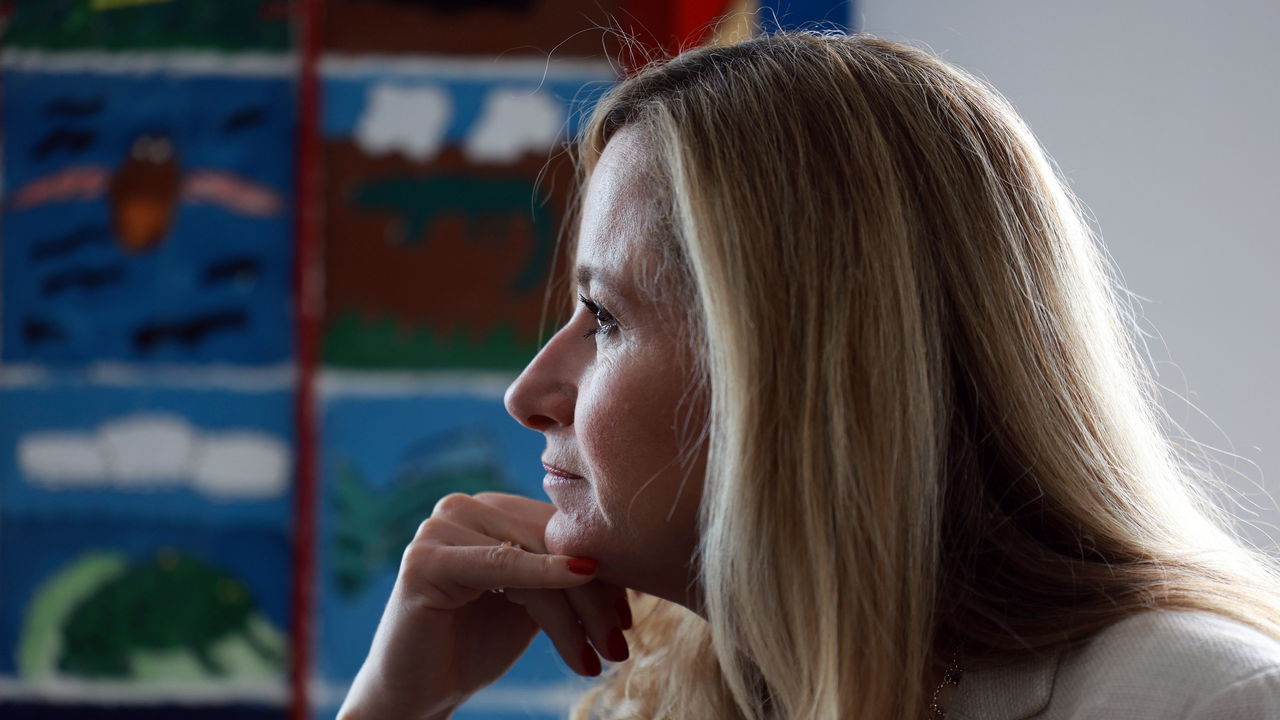“I’VE BEEN saying this for months now and a lot of people haven’t listened, but now they are: the stars are aligning in both Texas and Florida,” says Jaime Harrison, the chair of the Democratic National Committee. Aboard a swanky campaign bus in Jacksonville, Florida’s largest city, Mr Harrison’s tone shifts to distress as he explains that his party needs “multiple pathways to get the Senate majority”. In the final weeks of the campaign the map has become more daunting for Democrats. To their dismay, holding the upper chamber may now depend on flipping seats in America’s two biggest Republican-controlled states, where Donald Trump is expected to win comfortably.
New polls have Democrats like Mr Harrison feeling optimistic. Last week one in Texas showed Colin Allred, a linebacker-turned-congressman, in a dead heat with Ted Cruz, the Republican incumbent. In Florida Debbie Mucarsel-Powell, an Ecuadorean immigrant and one-term congresswoman, is trailing behind Rick Scott by as few as two or three points in her best polls. But The Economist’s forecast model, which accounts for other factors like candidate experience and the state’s voting history, shows a less rosy picture. By our reckoning, in each race Democrats have only a one-in-five chance of victory.
The Democratic Party is nonetheless hanging its hopes on these two races in part because the Republican incumbents are both deeply disliked. Mr Cruz, who has represented Texas since 2013, is a hardliner known for picking fights and not being a team player. “If you killed Ted Cruz on the floor of the Senate, and the trial was in the Senate, nobody would convict you,” Lindsey Graham, his colleague from South Carolina, teased in 2016. In 2021 Mr Cruz’s approval rating in Texas dropped when he jetted off to Cancún as his constituents suffered through a winter storm that left millions without power. On policy, his indelible support for Texas’s near-total abortion ban, one of America’s harshest, has done nothing to endear him to the plurality of Texans who support fewer restrictions.
Unpopularity contests
Mr Scott, in Florida, may be the rare politician with even fewer friends than Mr Cruz. He entered politics after the hospital chain he founded and ran had to pay out in America’s biggest Medicare fraud. After serving two terms as governor he won a Senate race in 2018 and was put in charge of the party’s campaign arm for the 2022 midterms. He presented a hard-right plan to remake the Republican Party, which included a proposal to sunset entitlement programmes that went over as poorly nationally as it did in Florida, a state where one in five residents is a pensioner. When Republicans did badly, they blamed him.
Mr Scott responded by challenging Mitch McConnell for the job of Senate majority leader. “Now I’m seeking to become the least popular man in Washington and I’m happy to report I’m making great progress,” he quipped in a speech at the Conservative Political Action Conference last year. At home his inability to curb Florida’s property-insurance crisis throughout his political career has left many locals reeling as hurricanes batter the coast and bankrupt families.
Democrats wanted both Republicans to have to confront these liabilities. Yet it was not until late September that the Democratic Senatorial Campaign Committee, responsible for getting Democrats elected, went on the offensive in Texas and Florida with a pair of multimillion-dollar ad-buys. Ms Mucarsel-Powell, Mr Scott’s opponent who says her initials stand for “Don’t Mess with my People”, reckons the money was too little, too late. In other battleground states, “you’re seeing investment and of course then you see shifts,” she says, but without that kind of cashflow to help the campaign talk to voters “nothing is going to happen.” Mr Scott, who in the past has written himself big cheques when he senses his rival in striking distance, has not spent even half of what he did in 2018, when he won by less than one point. Democrats hope that Florida’s ballot initiatives to legalise marijuana and codify abortion rights will give Ms Mucarsel-Powell a last-minute boost.
Plateauing poll numbers in Florida have national Democrats turning to Texas, where there seems to be better mojo after Mr Allred faced off with Mr Cruz in a debate two weeks ago. On October 25th Kamala Harris appeared at a rally with Mr Allred in Houston. It was the first time in decades that a Democratic presidential candidate has visited the state so close to election day. But on such conservative terrain any down-ballot Democrat is bound to struggle in a presidential cycle. This year “a vote against Ted Cruz is a vote against Donald Trump,” says Jason Sabo, a Democratic lobbyist in Austin.
Those paying attention to the campaigns could be forgiven for feeling a sense of déjà vu. Democrats have perennially promised that an increasingly diverse electorate would flip both states in their favour, only to suffer repeated losses. This time around some admit that they are playing the long game. In Texas a band of Democratic leaders launched the Agave PAC to build party infrastructure and “move past the boom-and-bust cycle of excitement”. And in Florida Nikki Fried, the state’s new Democratic Party chair, talks soberly about this year’s prospects. For the first time since the state flipped Republican the party is running state legislative candidates in every district, knowing they will lose in races big and small. “We’ve got to start somewhere,” she says. ■

 Finance1 week ago
Finance1 week ago
 Personal Finance1 week ago
Personal Finance1 week ago
 Blog Post1 week ago
Blog Post1 week ago
 Personal Finance1 week ago
Personal Finance1 week ago
 Economics5 days ago
Economics5 days ago
 Economics1 week ago
Economics1 week ago
 Accounting5 days ago
Accounting5 days ago
 Economics1 week ago
Economics1 week ago






















